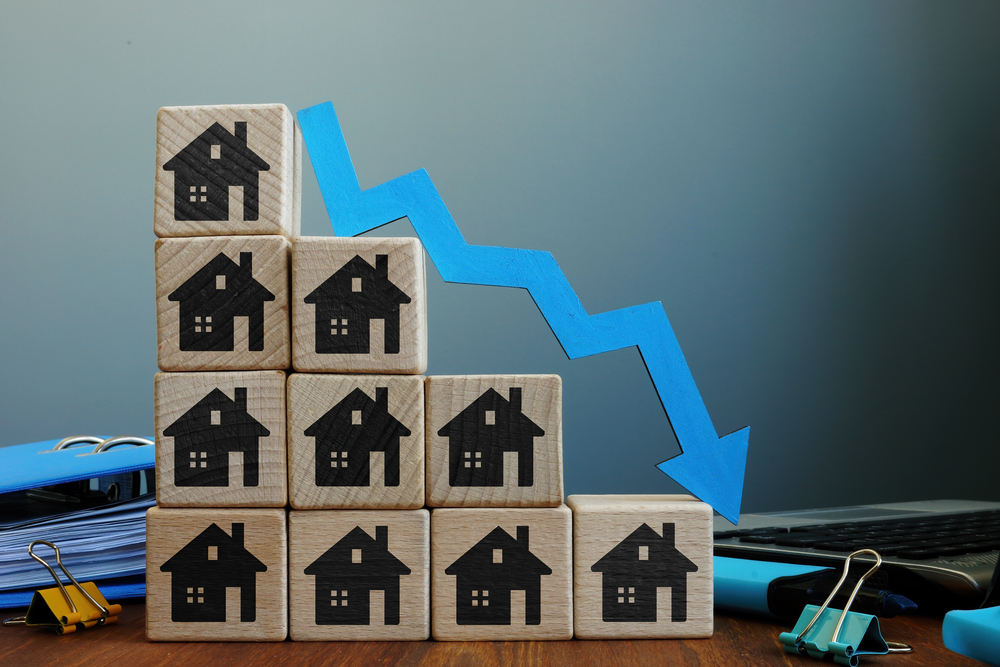I had a very interesting email exchange with a client who was asking for my opinion on a deal he was looking at. I shared with him that I would be very careful buying a property that produces a return that is less than you can borrow money for. That confused him, and when I reread how I worded that, I was confused too. Here is what I was trying to say and something that we as investors should be aware of.
Negative leverage could lead to market softening. In fact, I would count on it!
Negative leverage is when the interest rate on your loan is higher than the capitalization rate (cap rate) on the property. I am going to use the term cap rate because that is the common term in commercial real estate. The cap rate is the rate of return a property produces, assuming there is no loan. So, a property that sells at a 7% cap means it would produce a 7% return if you owned it free and clear. This is important to understand in commercial real estate because the cap rate is how you value the property. It is calculated by taking the purchase price and dividing it by the annual net operating income (NOI).
Negative Leverage In Residential Properties
Although it is more common in commercial real estate, this holds true with residential properties as well. Let’s go through an example of a property that can be purchased for $300,000 and produces $2,000 in gross rent per month or $24,000 per year. We would start with the annual gross rent and subtract a vacancy factor, taxes, insurance, maintenance, utilities, management fees, and any other expenses associated with the property. All of these expenses need to be calculated on an annual basis. Of the $24,000 in gross rent, we might have $15,000 left over. That $15,000 per year is your NOI. If we divide the NOI by the price, we get 5%. That is our cap rate. If the rate on our loan is higher than 5%, we have negative leverage.
In cases with negative leverage, the larger your down payment, the higher your cash-on-cash return. That is unusual because in what I would consider a “normal market” where cap rates are higher than loan rates, the lower the down payment, the higher the return on your dollar.
What About “Date The Rate And Marry The Property”
Feedback I get constantly, and that I agree with, for the most part, is that you “date the rate and marry the property”. That is basically saying it is okay to buy a property with a high-interest loan knowing that you will just refinance when rates go down. You’re betting on a higher cash-on-cash return down the road.
Although I agree with the concept, the concern I have is that most investors buy homes based on a return. This is less true with residential real estate as houses often trade on emotion and are valued by comparable sales, not a cap rate. My concern about a softening market is far less with residential for this reason, but I would expect a softening with commercial properties partly because of negative leverage.
Let’s face it, a lot of properties could not be purchased if the buyer did not obtain a loan. They rely on financing to purchase the property so the rate on the loan directly impacts their investment returns. The higher the rate, the lower the investor return. This is why I believe cap rates have more room to increase. They should be at or above loan rates to make financing properties profitable. If rates remain elevated, which is the expectation of most economists, then cap rates should come up. When cap rates increase, the value of the asset decreases. Going back to our example of the $300,000 home at a 5% cap rate, if the demand in the market went to a 7% cap rate, the value would decrease to $214,286. That is a 28.6% decrease in property value with a 2% move in the cap rate.
$15,000 NOI / 5% cap rate = $300,000 value
$15,000 NOI / 7% cap rate = $214,286 value
Know Your Risk When It Comes To Negative Leverage
I want to reiterate that I am not predicting a 28.6% crash. I don’t even think this will have much of an impact on residential as those are less sensitive to cap rates. I do think this will impact commercial, but each commercial asset type and location will be impacted differently. The point I want to make is that it is possible to see decreasing values with negative leverage.
My advice to my client about the negative leverage was that it is possible to see some softening but also that I would not be gambling with this potential acquisition because we don’t know how long rates will remain elevated. The fact that borrowing money increases the investment risk and lowers your return does not feel like a sound investment move.

